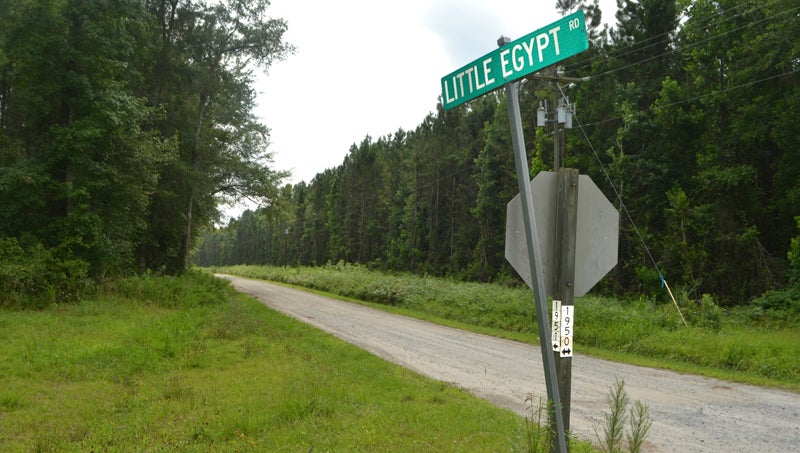Little Egypt likely has roots in Genesis, volcanic eruption
Published 6:07 pm Monday, July 24, 2017

- WHAT’S IN A NAME?: Little Egypt Road runs between Flat Swamp and Tuten roads in Blounts Creek. Its curious name is rumored to come from the Bible story told in the Book of Genesis, chapter 41. (Holt McKeithan/Daily News)
How did an unpaved road in Blounts Creek come to be named after one of the world’s greatest ancient civilizations?
Residents may have asked that question while driving through Blounts Creek and encountering Little Egypt Road.
Blounts Creek resident Ernest Cutler believes a story passed down in his family for generations may reveal the answer.
“I know what my daddy used to tell me,” Cutler said.
In the early 1800s, Blounts Creek and the surrounding area experienced a severe frost in the middle of summer that killed off most of the corn crop, according to Cutler.
“It was a freak thing,” he said. “It was a frost in July right when the corn was making.”
Corn was even more crucial than it is today, Cutler said, because it was cooked for consumption patients and corn seed used to feed livestock. Since the Little Egypt Road community was able to grow corn, people came from all around to get it.
Cutler said the similarity of the situation to the Bible story told in the Book of Genesis, chapter 41, might have inspired the name Little Egypt.
In the biblical story, Joseph stores up grain for seven years in preparation for a famine. Genesis 41:56-57 reads, “The famine was severe in the land of Egypt. The people of all the earth came to Egypt to buy grain from Joseph, because the famine was severe in all the earth.”
Jean Gurkin, president of the Beaufort County Genealogical Society, said that she thinks this explanation makes sense.
Gurkin said she believes the summer frost that drove people to Little Egypt Road was a part of global climate anomaly during 1816, known as “the year with no summer.” The eruption of Mount Tambora, a volcano off the coast of Indonesia, caused a year of unusually cold temperatures, according to the University Corporation for Atmospheric Research.
The volcanic eruption was the largest in recorded history, and ash and particles released into the atmosphere blocked the sun and led to a summer of snowfall and frosts in North America and Europe, according to UCAR.
Cutler said he is unsure why Little Egypt would have been able to grow corn when it died in surrounding areas. The area used to be home to a number of families, but it is now sparsely populated, he said.





